Text

Yemen: Houthis Sentence Men to Death, Flogging
(Beirut) – A Houthi court sentenced 32 men, 9 of them to death, on January 23, 2024, in an unfair mass trial based on dubious charges of “sodomy,” Human Rights Watch said today. The Houthis should end their use of the death penalty and other forms of cruel and degrading punishment and provide fair trials for those charged.
In addition to death sentences that include crucifixion and stoning, the Houthi court sentenced 23 men to prison for periods of up to 10 years. Three of them were also sentenced to public flogging. The initial court indictment, dated October 17, 2023, included serious due process violations and egregious violations of Yemen’s own criminal procedural code, Human Rights Watch found.
“In an abhorrent disregard for the rule of law, the Houthis are handing down death sentences and subjecting men to public mistreatment without a semblance of due process,” said Niku Jafarnia, Yemen and Bahrain researcher at Human Rights Watch. “The Houthis are using these cruel measures to distract from their failure to govern and provide people in their territories with basic needs.”
Human Rights Watch reviewed the official indictments against the 32 men by the Houthi courts and videos of the Houthi court proceedings posted on social media, and interviewed a lawyer with knowledge of the case. Blatant due process violations included police officers failing to provide arrest warrants and unlawfully searching and confiscating the men’s phones. The lawyer questioned whether those charged had adequate access to legal counsel.
Human Rights Watch has documented serious violations by governments in the Middle East and North Africa targeting lesbian, gay, bisexual, and transgender (LGBT) people online and using “illegitimately obtained digital photos, chats, and similar information” to prosecute them. (Human Rights Watch)
2 notes
·
View notes
Text
Argentina: Firearms Resolution Opens Door to Abuse

(Washington, DC) - A new executive branch resolution broadening the scope for security agents’ use of firearms in Argentina runs counter to basic human rights standards and opens the door to abuse, Human Rights Watch said today.
On March 14, 2024, Security Minister Patricia Bullrich approved the resolution citing increased gang violence in the city of Rosario, Santa Fe province, which Human Rights Watch visited in late February. The resolution contains loopholes and ambiguities that could allow security officers to employ firearms in an unacceptably broad set of circumstances. It applies to all national security forces, including the national police and the national penitentiary service.
“People in Rosario and elsewhere in Argentina should be able to go about their daily lives without fear due to insecurity,” said Juanita Goebertus, Americas director at Human Rights Watch. “To achieve that, the government should be strengthening judicial capacity and preventing gang recruitment, not opening the door to excessive use of force.”
The resolution is an extended version of another resolution that Bullrich passed in 2018, when she was also Security Minister. Human Rights Watch had called for its modification as it ran counter to international human rights standards.
Rosario is the urban center with the highest rate of homicides in Argentina, five times higher than the average national rate. Its location, on the banks of a key waterway for regional trade and connected by land to Paraguay and Bolivia, makes it strategic for drug trafficking. For more than a decade, various local gangs have fought over control of the local drug trade. In the first two weeks of March, two taxi drivers, a bus driver, and a gas station employee were killed. Some analysts say the killings were possibly a countermove by gangs against the authorities’ measures to exert greater control in prisons.
When Human Rights Watch visited Rosario, provincial and municipal authorities, as well as judges, prosecutors, and experts on gang violence, emphasized the importance of strengthening judicial and prosecutorial capacities to investigate crimes by local gangs, their financing, and their connections with corrupt politicians. They also cited the need to prevent gang recruitment by improving education and job opportunities. (Human Rights Watch)
5 notes
·
View notes
Text

“What should I do with those copies of Apple Daily?”
Someone in Hong Kong who I was chatting with on the phone recently had suddenly dropped her voice to ask that question, referring to the pro-democracy newspaper that the government forced to shut down in 2021.
“Should I toss them or send them to you?”
My conversations with Hong Kong friends are peppered with such whispers these days. Last week, the city enacted a draconian security law — its second serious legislative assault on Hong Kong’s freedoms since 2020. Known as Article 23, the new law criminalizes such vague behavior as the possession of information that is “directly or indirectly useful to an external force.”
Hong Kong was once a place where people did not live in fear. It had rule of law, a rowdy press and a semi-democratic Legislature that kept the powerful in check. The result was a city with a freewheeling energy unmatched in China. Anyone who grew up in China in the 1980s and 1990s could sing the Cantopop songs of Hong Kong stars like Anita Mui, and that was a problem for Beijing: Freedom was glamorous, desirable.
When Britain handed Hong Kong back to China in 1997, the city’s people accepted, in good faith, Beijing’s promises that its capitalist system and way of life would remain unchanged for 50 years and that the city would move toward universal suffrage in the election of its leader.
Not anymore. Now Hong Kong people are quietly taking precautions, getting rid of books, T-shirts, film footage, computer files and other documents from the heady days when the international financial center was also known for its residents’ passionate desire for freedom. (Human Rights Watch)
2 notes
·
View notes
Text
UN Special Rapporteur Report on Gaza Provides Crucial Evidence That Must Spur International Action to Prevent Genocide
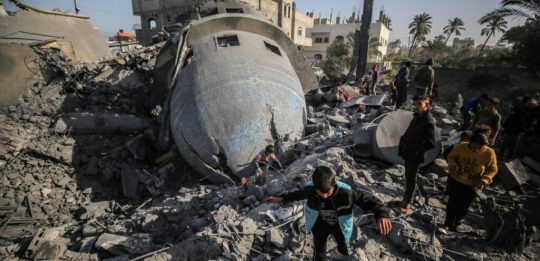
Amnesty International welcomes the new report by the UN Special Rapporteur on the situation of human rights in the Palestinian territory occupied since 1967, which concludes there are “reasonable grounds to believe the threshold indicating Israel’s commission of genocide is met.”
As the UN Human Rights Council holds a meeting today to discuss the report’s findings, Amnesty International’s Secretary General Agnès Callamard made the following statement:
“This is a crucial body of work that must serve as a vital call to action to states. They must uphold their obligations under the Genocide Convention and take concrete measures to protect Palestinians in Gaza today.
“The time to act to prevent genocide is now. Third states must apply political pressure on the warring parties to implement the UN Security Council resolution adopted yesterday demanding an immediate ceasefire, use their influence to insist that Israel abides by the resolution, including by stopping the shelling and lifting restrictions on humanitarian aid. They must impose a comprehensive arms embargo against all parties to the conflict. They must also pressure Hamas and other armed groups to free all civilian hostages.
“The report comes two months after the International Court of Justice (ICJ) issued its ruling warning of a plausible risk of genocide. In that time, the situation in Gaza has grown exponentially worse, with thousands more Palestinians killed and Israel continuing to refuse to comply with the ICJ ruling to ensure provision of sufficient humanitarian aid to Palestinians as human-made famine edges closer each day and more people starve to death.
“We echo calls made in the UN Special Rapporteur’s report to ensure that UNRWA is fully funded, and also able to operate across all of Gaza – including in northern Gaza where Israeli authorities are denying entry to UNRWA trucks.
“Helping to prevent genocide also means supporting accountability efforts including the ongoing investigation by the Office of the Prosecutor of the International Criminal Court and exercising universal jurisdiction to bring those suspected of crimes under international law to justice. All states and in particular allies of Israel must press Israel to allow the UN Commission of Inquiry and the Special Rapporteur and other independent human rights monitors access to Gaza.
“An enduring ceasefire remains the best way to enforce the ICJ’s provisional measures to prevent genocide and further crimes and civilian suffering. In recent days momentum has gathered around calls to halt the fighting, with the European Council demanding a ceasefire last week and a UN Security Council yesterday adopting a resolution demanding an immediate ceasefire for the remaining two weeks of Ramadan. States must now focus their efforts on making these calls a reality.”
9 notes
·
View notes
Text
Urgent Action: POLITICIANS UNJUSTLY HELD FOR OVER A YEAR (Tunisia 52.23)
Opposition politicians Jaouhar Ben Mbarek, Khayyam Turki, Issam Chebbi, Ghazi Chaouachi, Ridha Belhaj, and Abdelhamid Jelassi have been arbitrarily detained since February 2023 on unfounded “conspiracy against state security” accusations. In January 2024, a judge rejected the latest appeals against the prolonged pre-trial detention of the six detainees submitted by the Committee for the Defense of Political Detainees. Tunisia’s anti-terrorism court is investigating all of them for trying to “change the nature of the state” under Article 72 of the Penal Code which carries the death penalty. We call on the Tunisian authorities to immediately and unconditionally release them and drop the charges against them as the charges stem from the peaceful exercise of their human rights.
TAKE ACTION:
Write a letter in your own words or using the sample below as a guide to one or both government officials listed. You can also email, fax, call or Tweet them.
Click here to let us know the actions you took on Third Urgent Action 52.23. It’s important to report because we share the total number with the officials we are trying to persuade and the people we are trying to help. (Amnesty International)
0 notes
Text
Urgent Action: LAST CHARGE AGAINST LEILA DE LIMA CONTINUES (Philippines 48.22)
Court proceedings on the third and final bogus charge against human rights defender and former Philippine senator, Leila de Lima, are resuming in March, or four months after she was allowed to post bail in November 2023 that resulted in her temporary freedom. In granting de Lima’s petition for bail, the court said the allegations against her were weak. We call on the government to impartially review this last remaining charge, with a view to dropping this, and to hold accountable those responsible for her nearly seven years of arbitrary detention and other human rights violations against her.
TAKE ACTION:
Write a letter in your own words or using the sample below as a guide to one or both government officials listed. You can also email, fax, call or Tweet them.
Click here to let us know the actions you took on Fourth Urgent Action 48.22. It’s important to report because we share the total number with the officials we are trying to persuade and the people we are trying to help. (Amnesty International)
1 note
·
View note
Text
Urgent Action: DISAPPEARANCES STRATEGY PUTS SEARCH AT RISK (Mexico 1.24)
On December 14, 2023, president of Mexico Andrés Manuel López Obrador and representatives of the Ministry of the Interior shared the results of the Disappeared Persons Search Strategy. This strategy includes an update of a census that records the number of people disappeared nationwide, known as National Register of Missing and Disappeared Persons (RNPDNO). The authorities decreased considerably the number of disappeared and missing people, and categorized ambiguously 80,000 people, acknowledging that did not have enough data to search them. We urge the Mexican government to ensure transparency and participation of the relatives of the disappeared on the census preparation.
TAKE ACTION:
Write a letter in your own words or using the sample below as a guide to one or both government officials listed. You can also email, fax, call or Tweet them.
Click here to let us know the actions you took on Urgent Action 1.24. It’s important to report because we share the total number with the officials we are trying to persuade and the people we are trying to help. (Human Rights Watch)
0 notes
Text

This week, a court in Kinshasa, Democratic Republic of Congo, convicted the prominent journalist Stanis Bujakera and sentenced him to six months in prison for sharing an article on social media alleging that Congolese military intelligence had killed a senior opposition official.
On the basis that he had already spent six months in pretrial detention, Bujakera was released on March 19.
Bujakera, 34, Congo’s most-followed journalist on social media, had been detained since September 8. The authorities had arrested and charged him with fabricating and distributing a fake intelligence memo saying that Congolese military intelligence had killed Chérubin Okende, a member of parliament and spokesman for the opposition party Ensemble pour la République. Bujakera was not the author of the memo, which was published in Jeune Afrique.
Okende disappeared in Kinshasa on July 12, 2023, and was found dead in his car with gunshot wounds the next day. The government had publicly denounced Okende’s murder and set up a commission of enquiry. But the public prosecutor handling the case concluded that Okende had committed suicide, and in a March 2 memo he instructed his office to question anyone “gossiping” about the investigation’s conclusions.
Investigations carried out by Reporters Without Borders (Reporters sans frontières, RSF) and the Congo Hold-Up media consortium determined that the memo was authentic and highlighted serious inconsistencies in the prosecution's claims that Bujakera had received the memo through a Telegram account and was the first person to share it. (Human Rights Watch)
25 notes
·
View notes
Text
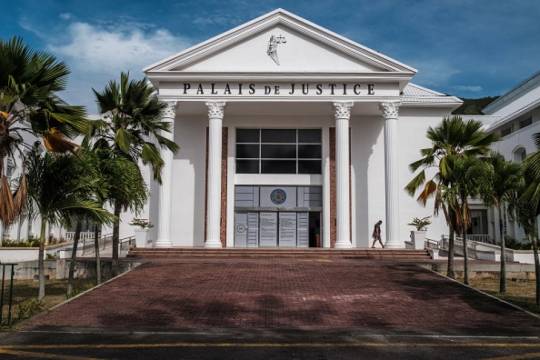
(Johannesburg) – The authorities in Seychelles should ensure that the prosecution of a former presidential adviser and other defendants in a high-profile anticorruption case is free, fair, and impartial, Human Rights Watch said today.
The ongoing trial of five defendants for alleged illegal possession of firearms and conspiracy to commit terrorism started in July 2023. Allegations of procedural and other irregularities, which have persisted since the initial arrests of the defendants in November 2021, should be transparently and speedily investigated and addressed so they do not jeopardize the defendants’ right to a fair trial.
“The authorities should ensure that the judicial proceedings are conducted in line with the Seychelles constitution and international human rights laws,” said Ashwanee Budoo-Scholtz, deputy director of the Africa division at Human Rights Watch. “Abusive and partial application in the enforcement of anticorruption and arms control laws, risks undermining the very rule of law they seek to enthrone.”
In November 2021, law enforcement authorities, including officials of the Anti-Corruption Commission of Seychelles, searched the home of Mukesh Valabhji and his wife, Laura Valabhji, and arrested both in connection with an allegedly missing US$50 million. The funds, a foreign aid donation from the United Arab Emirates (UAE) in 2002, was to help the Government of Seychelles address its foreign exchange shortfalls and debts, including for importing essential commodities, like fuel and food.
Mukesh, then chief executive officer of the Seychelles Marketing Board and economic adviser to then-President France Albert René, was authorized by the president to sign the documentation and deposit the allegedly missing funds into a Marketing Board bank account.
The arrests and prosecution of the defendants, which include the wife of former president René, was widely touted as key progress toward ending impunity for corruption in the country. Media reports quoted the Anti-Corruption Commission officials as saying they opened the case in 2017 on then-President Danny Faure’s instruction, and that “there is nothing sinister about it or any ulterior motives.” Lawyers for the Valabhjis said, however, that former governments had said they had found no evidence of theft of the UAE funds. Human Rights Watch was unable to verify this information. (Human Rights Watch)
1 note
·
View note
Text
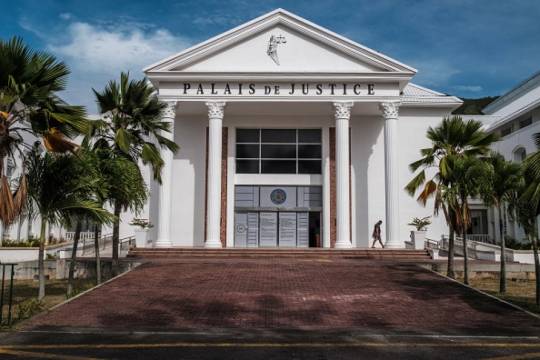
(Johannesburg) – The authorities in Seychelles should ensure that the prosecution of a former presidential adviser and other defendants in a high-profile anticorruption case is free, fair, and impartial, Human Rights Watch said today.
The ongoing trial of five defendants for alleged illegal possession of firearms and conspiracy to commit terrorism started in July 2023. Allegations of procedural and other irregularities, which have persisted since the initial arrests of the defendants in November 2021, should be transparently and speedily investigated and addressed so they do not jeopardize the defendants’ right to a fair trial.
“The authorities should ensure that the judicial proceedings are conducted in line with the Seychelles constitution and international human rights laws,” said Ashwanee Budoo-Scholtz, deputy director of the Africa division at Human Rights Watch. “Abusive and partial application in the enforcement of anticorruption and arms control laws, risks undermining the very rule of law they seek to enthrone.”
In November 2021, law enforcement authorities, including officials of the Anti-Corruption Commission of Seychelles, searched the home of Mukesh Valabhji and his wife, Laura Valabhji, and arrested both in connection with an allegedly missing US$50 million. The funds, a foreign aid donation from the United Arab Emirates (UAE) in 2002, was to help the Government of Seychelles address its foreign exchange shortfalls and debts, including for importing essential commodities, like fuel and food.
Mukesh, then chief executive officer of the Seychelles Marketing Board and economic adviser to then-President France Albert René, was authorized by the president to sign the documentation and deposit the allegedly missing funds into a Marketing Board bank account.
The arrests and prosecution of the defendants, which include the wife of former president René, was widely touted as key progress toward ending impunity for corruption in the country. Media reports quoted the Anti-Corruption Commission officials as saying they opened the case in 2017 on then-President Danny Faure’s instruction, and that “there is nothing sinister about it or any ulterior motives.” Lawyers for the Valabhjis said, however, that former governments had said they had found no evidence of theft of the UAE funds. Human Rights Watch was unable to verify this information. (Human Rights Watch)
1 note
·
View note
Text
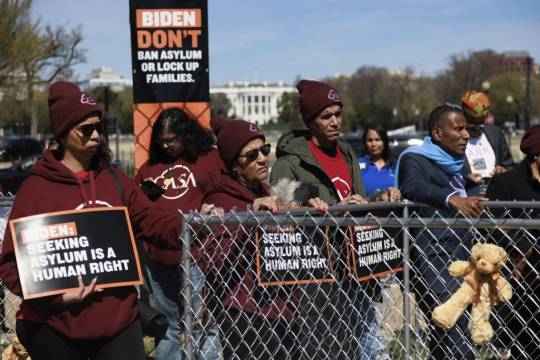
The story of Laken Riley, the nursing student killed in February in Athens, Ga., is deeply tragic. And in this election year when politicians, the media, and members of the public regularly conflate race, crime, and immigration, the story of her death is being weaponized and twisted to suit cynical and dangerous political theater.
Prosecutors charged a 26-year-old man, Jose Antonio Ibarra, in Ms. Riley's death. The authorities said he had migrated from Venezuela. Almost immediately many commentators and politicians threw aside any presumption of innocence and inserted the case into the broader debate around migration and policies of deterrence. But drawing simplistic conclusions or wider patterns based on individual cases—while ignoring the myriad complex social, political, and economic forces around them—does little more than rob the individuals involved of their humanity.
The U.S. has a long record of portraying men of color as violent and aggressive for political gain. Among the most infamous examples is the use of images of William Horton during the 1988 presidential election cycle, which played into white fears of Black criminality and promoted the death penalty. Now, Georgia's governor, former President Donald Trump, and others are building upon this shameful history to demonize migrants and spread misinformation.
The use of white supremacist, anti-immigrant, and invasion rhetoric is dangerous and risks escalation to violence and racial profiling. In Athens, community groups already reported seeing posts with language about "hunting for immigrants."
In his State of the Union address, President Joe Biden added to the problem by also referencing the Riley case. In one breath, Biden used dehumanizing language to describe Mr. Ibarra's immigration status, called for additional punitive border policies, and undermined a presumption of innocence. (Human Rights Watch)
2 notes
·
View notes
Text
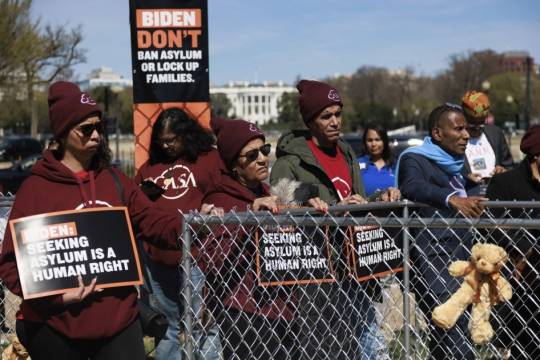
The story of Laken Riley, the nursing student killed in February in Athens, Ga., is deeply tragic. And in this election year when politicians, the media, and members of the public regularly conflate race, crime, and immigration, the story of her death is being weaponized and twisted to suit cynical and dangerous political theater.
Prosecutors charged a 26-year-old man, Jose Antonio Ibarra, in Ms. Riley's death. The authorities said he had migrated from Venezuela. Almost immediately many commentators and politicians threw aside any presumption of innocence and inserted the case into the broader debate around migration and policies of deterrence. But drawing simplistic conclusions or wider patterns based on individual cases—while ignoring the myriad complex social, political, and economic forces around them—does little more than rob the individuals involved of their humanity.
The U.S. has a long record of portraying men of color as violent and aggressive for political gain. Among the most infamous examples is the use of images of William Horton during the 1988 presidential election cycle, which played into white fears of Black criminality and promoted the death penalty. Now, Georgia's governor, former President Donald Trump, and others are building upon this shameful history to demonize migrants and spread misinformation.
The use of white supremacist, anti-immigrant, and invasion rhetoric is dangerous and risks escalation to violence and racial profiling. In Athens, community groups already reported seeing posts with language about "hunting for immigrants."
In his State of the Union address, President Joe Biden added to the problem by also referencing the Riley case. In one breath, Biden used dehumanizing language to describe Mr. Ibarra's immigration status, called for additional punitive border policies, and undermined a presumption of innocence. (Human Rights Watch)
3 notes
·
View notes
Text
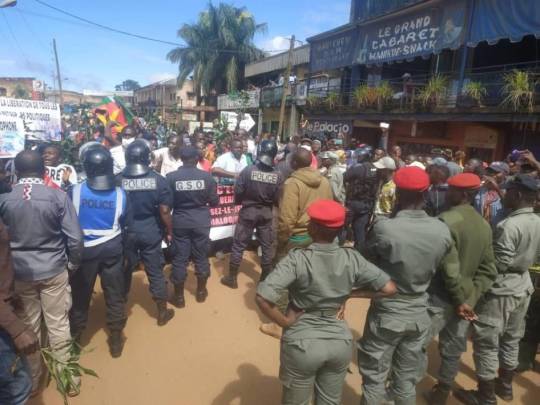
(Nairobi) – A declaration by Cameroon’s territorial administration minister to make two opposition coalitions illegal is part of a government crackdown on opposition and dissent, Human Rights Watch said today.
On March 12, 2024, the minister, Paul Atanga Nji, said in a statement that the Political Alliance for Change (Alliance politique pour le changement, APC), led by Jean-Michel Nintcheu, and the Political Alliance for Transition in Cameroon (Alliance politique pour la transition, APT), led by Olivier Bile, are “illegal,” calling them “clandestine movements.” The minister also referenced a recent meeting at a prison in Yaoundé between Nintcheu and Sisiku Julius Ayuk Tabe, a leader of the Anglophone separatist group Ambazonia Interim Government, as a factor in the decision to ban the coalition.
“The government’s move against these coalitions shows how the Cameroonian authorities are moving to close down space for the opposition and for public debate ahead of the 2025 presidential elections,” said Carine Kaneza Nantulya, deputy Africa director at Human Rights Watch. “The authorities should immediately lift the ban and allow opposition parties to continue working without harassment.”
In December 2023, a prominent opposition leader, Maurice Kamto, was reelected as the leader of the Movement for the Renaissance of Cameroon (Mouvement pour la renaissance du Cameroun, MRC), one of the most prominent opposition groups in the country. Kamto used his reelection to announce the creation of the APC.
The current president, Paul Biya, has been in power since 1982 and is serving out his seventh term. Biya, 91, was last reelected in 2018 after a contested vote-counting process. Kamto challenged the official results and declared himself winner of the election.
Biya’s 2018 election sparked a wave of political repression. After the 2018 vote, opposition-led protests occurred across the country, and the government responded with a heavy crackdown and the use of excessive force by the police, army, and gendarmes. In January 2019, Kamto and over 200 of his supporters were arrested and detained. Kamto was charged with insurrection, hostility against the homeland, criminal association, threats to public order, rebellion, and inciting insurrection, crimes that can carry the death penalty. He was freed on October 5, 2019, and the charges were dropped, though the crackdown on the opposition continued. (Human Rights Watch)
2 notes
·
View notes
Text

“They held him there to send a message to the rest of us: be careful, or else.” A human rights activist from the Central African Republic said this to Human Rights Watch after Crépin Mboli Goumba, a prominent political opponent, was arrested and sent to a police unit notorious for torture, executions, and shooting suspects on sight.
On March 3, Mboli Goumba was arrested on charges of contempt of court after a press conference during which he accused four judges and the minister of justice of corruption, offering documentation to support his accusations and asking authorities to investigate.
Instead of a police station in the city, Mboli Goumba was taken to the headquarters of the Central Office for the Repression of Banditry (Office Central de Répression du Banditisme, OCRB), a police unit created in the late 1990s to address a rise in banditry that developed a notorious reputation for abuse. In 2016, Human Rights Watch released a report outlining how members of the OCRB unlawfully executed at least 18 people and possibly more between April 2015 and March 2016.
For the past two years the Central African Republic’s ruling party, the United Hearts Movement (Mouvement Cœurs Unis) and its supporters have waged a crackdown on civil society, media, and the political opposition. Since the idea for a constitutional referendum to remove presidential term limits first surfaced in 2022, governmental institutions, including police, have threatened civil society advocates, accused them of collaborating with armed groups, and prevented opposition protests. (Human Rights Watch)
1 note
·
View note
Text
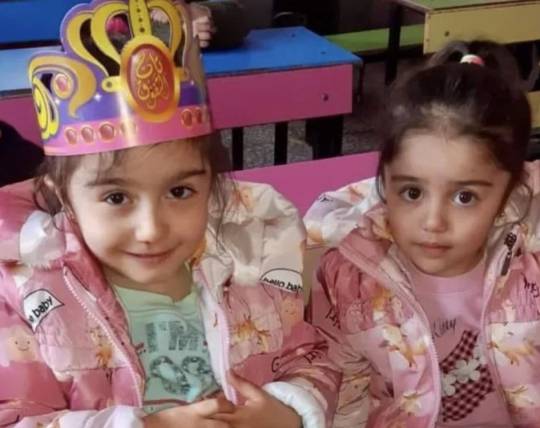
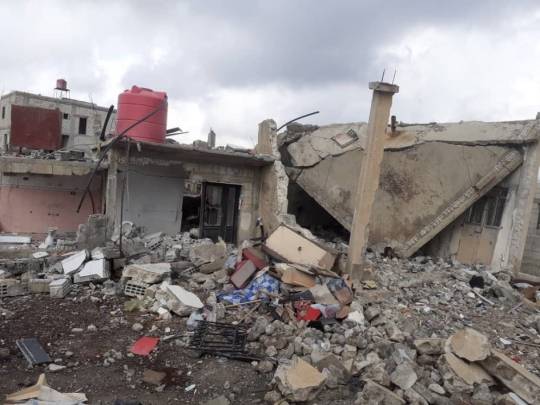
(Beirut) – Jordan should ensure accountability for airstrikes in southeast Syria that killed 10 people on January 18 and compensate the victims and their families, Human Rights Watch said today. The strikes, which killed women and children, appear to amount to extrajudicial executions.
The airstrikes were part of an intensified campaign by the Jordanian Armed Forces against drug and weapons traffickers following recent clashes on its border with armed groups reportedly carrying narcotics, arms, and explosives that it suspects are tied to pro-Iranian militias. On January 23, the Syrian government responded, saying there was no justification for Jordan’s attacks. The Jordanian Foreign Ministry retorted, neither denying nor confirming the attacks, but emphasizing the threat posed by drug and weapons smuggling, its impact on Jordan’s national security, and the lack of effective action by the Syrian government to combat such operations in its territory. Human Rights Watch wrote to Jordan's Foreign Minister on January 31 detailing its findings, but received no response as of the time of publication.
“Cross-border airstrikes that kill civilians demand scrutiny regardless of the threat posed by drug smuggling from southern Syria,” said Adam Coogle, deputy Middle East director at Human Rights Watch. “Jordan should halt military strikes against non-military targets and compensate victims of previous attacks and their families.” (Human Rights Watch)
2 notes
·
View notes
Text
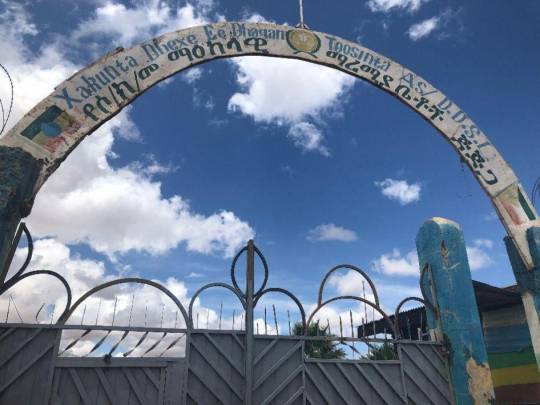
This week, Ethiopian authorities dropped all charges and released Abdi Mohamoud Omar, also known as “Abdi Illey,” the former president of Ethiopia’s Somali region, after serving more than five years in prison. The action is a setback to ending impunity for crimes involving senior officials.
State media reported that Ethiopia’s Ministry of Justice took the action for the “sake of public interest.”
Federal officials initially arrested Abdi Illey in 2018 for “violations of human rights and inciting ethnic and religious conflict in the Somali region,” and charged him in 2019 for his role during his last days in office, when Somali youth groups loyal to him and Somali regional special forces, called the “Liyu police,” attacked non-Somali groups. The charges also covered the destruction of churches and property in the Somali regional capital of Jigjiga.
But the authorities never brought charges against Abdi Illey for crimes during his decade of abusive rule.
As regional security chief in 2006, and president from 2010-2018, Abdi Illey oversaw and commanded the Liyu police. Human Rights Watch documented that the Liyu police frequently committed serious rights abuses against civilians throughout the Somali region during counterinsurgency campaigns, including extrajudicial killings, torture, and rape, as well as reprisals against local communities. (Human Rights Watch)
6 notes
·
View notes
Text

Mali’s minister of territorial administration’s order to dissolve a student association is just the latest in a series of government actions to crack down on freedom of association.
The minister said that the Association of Pupils and Students of Mali (L’Association des Elèves et Etudiants du Mali, AEEM) was responsible for “violence and clashes in schools and universities,” and that in 2017 and 2018 the security forces had arrested some of its members who had been found with “lethal weapons, narcotics and large sums of unjustified money.”
The AEEM is the fourth organization to be dissolved in less than four months. On March 6, authorities dissolved the Coordination of Movements, Associations, and Sympathizers of Imam Mahmoud Dicko (Coordination des Mouvements, Associations et Sympathisants de l’Imam Mahmoud Dicko), which had been calling for presidential elections as part of a transition back to civilian democratic rule, accusing it of “destabilization and threat to public security.” On February 28, authorities dissolved the political organization Kaoural Renewal (Kaoural Renouveau), citing “defamatory and subversive remarks” against the military junta. And on December 20, authorities dissolved the Observatory for Elections and Good Governance (Observatoire pour les élections et la bonne gouvernance), a civil society group that monitored the fairness of elections, accusing its chairman of “statements likely to disturb public order.”
Since the military coup in 2021, Mali’s junta has increasingly cracked down on peaceful dissent, political opposition, and the media, shrinking the country’s civic space. On March 4, authorities forcibly disappeared gendarmerie Col. Alpha Yaya Sangaré, who recently published a book about abuses by the Malian armed forces. (Human Rights Watch)
1 note
·
View note